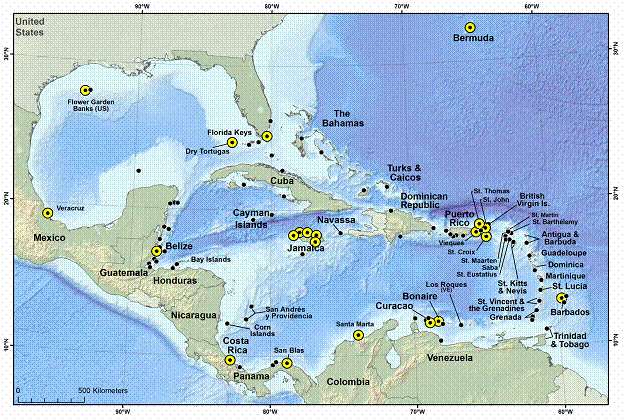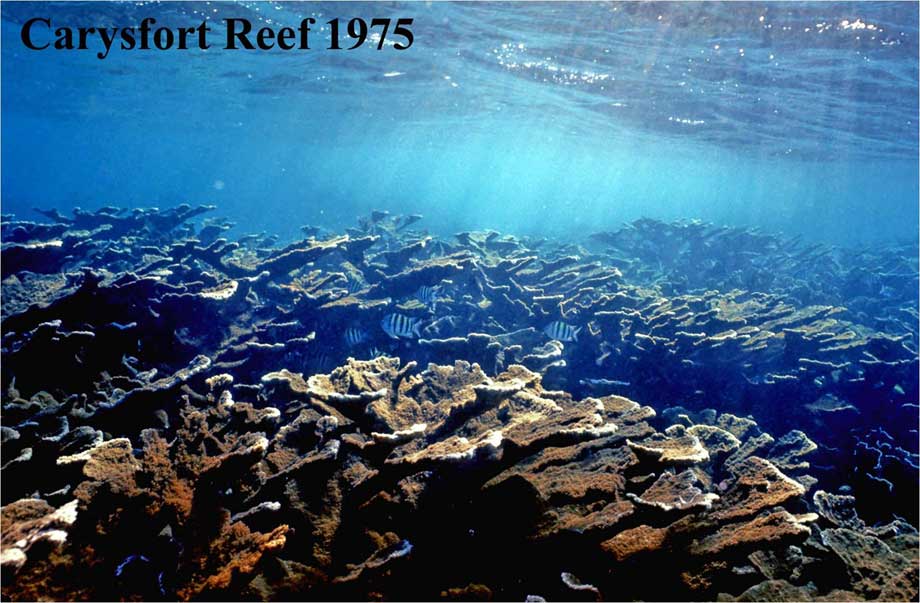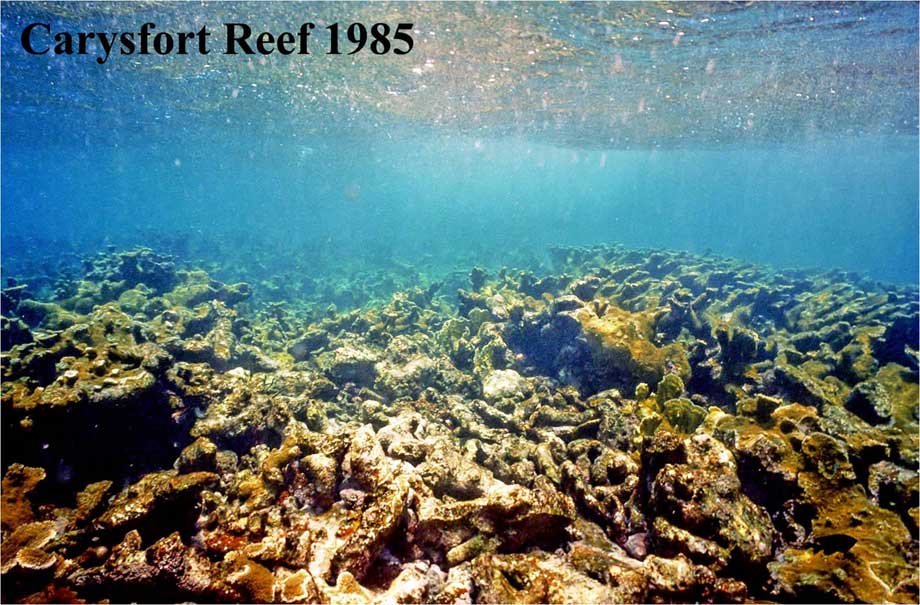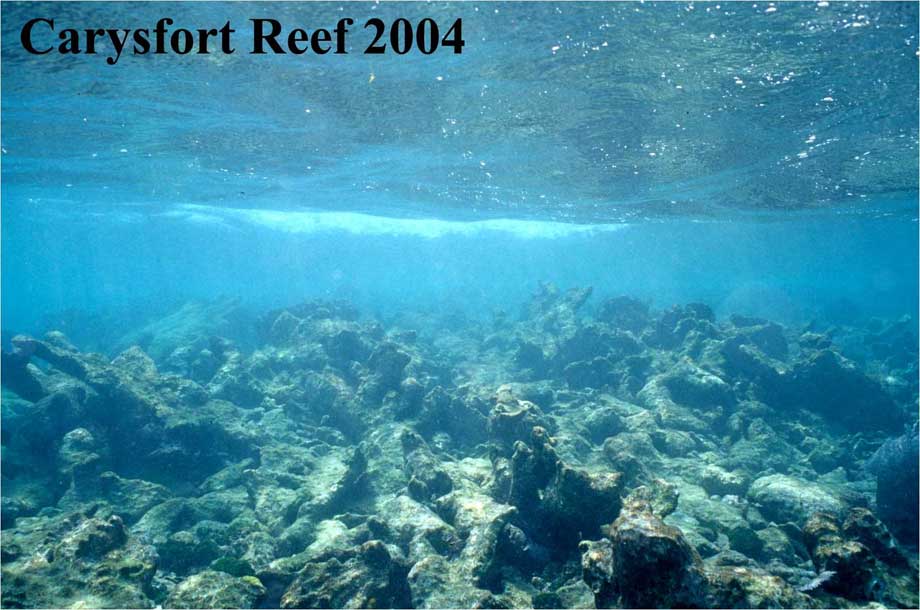Dramatic Decline Of Caribbean Corals Can Be Reversed
By Marianne de Nazareth
03 July, 2014
Countercurrents.org
The massive explosion of our human population seems to be taking an adverse toll on every corner of the planet. Even the beautiful corals of the Caribbean have not been spared. Frightening, considering that, we humans do not realise that life is a complex web of all species of flora and fauna. Unless there is a balance of everything, we are doomed to a future which is bleak and unsustainable.
A new report published called, "Status and Trends of Caribbean Coral Reefs: 1970-2012" by Jeremy Jackson, which is the collated work of 90 experts over the course of three years, makes for intersting reading. The report contains the analysis of more than 35,000 surveys, conducted at 90 Caribbean locations since 1970, including studies of corals, seaweeds, grazing sea urchins and fish. Supported by the Global Coral Reef Monitoring Network (GCRMN), the International Union for Conservation of Nature (IUCN) and the United Nations Environment Programme (UNEP) the report states that with only about one-sixth of the original coral cover left, most Caribbean coral reefs may disappear in the next 20 years, primarily due to the loss of grazers in the region.
Caribbean coral reefs have suffered massive losses of corals since the early 1980s, due to a wide range of human impacts, including explosive human population growth, overfishing, coastal pollution, global warming, and invasive species says the report. The consequences include widespread collapse of coral populations, increases in large seaweeds (macroalgae), outbreaks of coral bleaching and disease, and failure of corals to recover from natural disturbances such as hurricanes. Alarm bells were set off by the 2003 publication in the journal Science1 that live coral cover had been reduced from more than 50% in the 1970s to just 10% today.
This dramatic decline was closely followed by widespread and severe coral bleaching in 2005, which was in turn followed by high coral mortality due to disease at many reef locations. Healthy corals are increasingly rare on the intensively studied reefs of the Florida reef tract, US Virgin Islands, and Jamaica. Moreover, two of the formerly most abundant species, the elkhorn coral Acropora palmata and staghorn coral Acropora cervicornis, have been added to the United States endangered list, according to T.A. Gardner et al. in a paper published in 2003.
Infact the concerns have mounted to the point that many NGOs have given up on Caribbean reefs and moved their attentions elsewhere. It was against this gloomy backdrop that this study was undertaken to assess more rigorously than before the extent to which coral reef ecosystems throughout the wider Caribbean may have suffered the same fate, and if they have not, to determine what were the factors responsible. Various reports suggested that reefs in the southern Caribbean were in better ecological condition than elsewhere, with more live coral and reef fish. If this were true, understanding why some reefs are healthier than others would provide an essential first step for more effective management to improve the condition of coral opined the authors.

Figure above: Distribution of 90 reef locations analyzed for the study. The large circles indicate 21 locations with the most complete time series data for analysis of long-term trends in coral cover.
The results show that the Caribbean corals have declined by more than 50% since the 1970s. But according to the authors, restoring parrotfish populations and improving other management strategies, such as protection from overfishing and excessive coastal pollution, could help the reefs recover and make them more resilient to future climate change impacts.

Carysfort Reef, Florida Keys, 1975 (c) Philip Dustan

Carysfort Reef, Florida Keys, 1985 (c) Philip Dustan

Carysfort Reef, Florida Keys, 2004 (c) Bob Steneck
“The rate at which the Caribbean corals have been declining is truly alarming,” says Carl Gustaf Lundin, Director of IUCN's Global Marine and Polar Programme. “But this study brings some very encouraging news: the fate of Caribbean corals is not beyond our control and there are some very concrete steps that we can take to help them recover.”
Climate change has long been thought to be the main culprit in coral degradation. While it does pose a serious threat by making oceans more acidic and causing coral bleaching, the report shows that the loss of parrotfish and sea urchin – the area's two main grazers – has, in fact, been the key driver of coral decline in the region. An unidentified disease led to a mass mortality of the sea urchin in 1983 and extreme fishing throughout the 20th century has brought the parrotfish population to the brink of extinction in some regions. The loss of these species breaks the delicate balance of coral ecosystems and allows algae, on which they feed, to smother the reefs.
Reefs protected from overfishing, as well as other threats such as excessive coastal pollution, tourism and coastal development, are more resilient to pressures from climate change, according to the authors.
“Even if we could somehow make climate change disappear tomorrow, these reefs would continue their decline," says Jeremy Jackson, lead author of the report and IUCN's senior advisor on coral reefs. "We must immediately address the grazing problem for the reefs to stand any chance of surviving future climate shifts.”
The report also shows that some of the healthiest Caribbean coral reefs are those that harbour vigorous populations of grazing parrotfish. These include the U.S. Flower Garden Banks National Marine Sanctuary in the northern Gulf of Mexico, Bermuda and Bonaire, all of which have restricted or banned fishing practices that harm parrotfish, such as fish traps and spearfishing. Other countries are following suit.
“Barbuda is about to ban all catches of parrotfish and grazing sea urchins, and set aside one-third of its coastal waters as marine reserves,” says Ayana Johnson of the Waitt Institute's Blue Halo Initiative which is collaborating with Barbuda in the development of its new management plan. “This is the kind of aggressive management that needs to be replicated regionally if we are going to increase the resilience of Caribbean reefs.”
Reefs where parrotfish are not protected have suffered tragic declines, including Jamaica, the entire Florida Reef Tract from Miami to Key West, and the U.S. Virgin Islands.
The Caribbean is home to 9% of the world's coral reefs, which are one of the most diverse ecosystems on the planet. Caribbean reefs, spanning a total of 38 countries, are vital to the region's economy. They generate more than US$ 3 billion annually from tourism and fisheries and over a hundred times more in other goods and services, on which more than 43 million people depend.
The results of the study clearly show:
• Coral reef health requires an ecological balance of corals and algae in which herbivory is a key element;
• Populations of parrotfish are a critical component of that herbivory, particularly since the decline of Diadema sea urchins in the early 1980s;
• The main causes of mortality of parrotfish are the use of fishing techniques such as spear fishing and, particularly, the use of fish traps.
The Report further identifies that overfishing of herbivores, particularly parrotfish, has been the major drivers of reef decline in the Caribbean to date, concluding that management action to address overfishing at the national and local levels can have a direct positive impact on reef health now and for the future.
In some areas of the wider Caribbean (for example Bermuda and the Exuma Cays Land and Sea Park in the Bahamas, and more lately in Belize and Bonaire), active management including bans on fish traps, has led to increases in parrotfish numbers and consequent improvement in reef health and resilience to perturbations including hurricanes. This is in contrast to other areas within the Caribbean, where heavily fished reefs lacked the resilience to recover from storm damage.
Positive impacts on reef health demonstrably have spill over effects on local economies, including the potential for alternative livelihoods to fishing, thanks to increased tourism revenues, replenishment of fish stocks and restoration of ecosystem services such as shoreline protection.
It is recognised that in the Caribbean there are varying levels of community reliance on fishing in general and the taking of parrotfish in particular. However, in light of the evidence now available, and in accordance with ICRI's Framework for Action cornerstone of ‘integrated management' (which includes fisheries management), the International Coral Reef Initiative would like to highlight the benefits of strong management to protect reefs from overfishing, and urges immediate action to effectively protect parrotfish and similar herbivores.
Accordingly, the International Coral Reef Initiative urges Nations and multi-lateral groupings of the wider Caribbean to engage with indigenous and local communities and other stakeholders to communicate the benefits of such strategies for coral reef ecosystems, the replenishment of fisheries stocks and communities' economy.
The points made which would help dramatically restore the corals were:
1. Adopt conservation and fisheries management strategies that lead to the restoration of parrotfish populations and so restore the balance between algae and coral that characterises healthy coral reefs;
2. Maximise the effect of those management strategies by incorporating necessary resources for outreach, compliance, enforcement and the examination of alternative livelihoods for those that may be affected by restrictions on the take of parrotfish;
3. Consider listing the parrotfish and highlight the issue of reef herbivory in relevant Caribbean fisheries fora.
( Marianne de Nazareth is a Freelance science and environment journalist and adjunct faculty, St Joseph's College of Media studies, Bangalore. )
Comments are moderated
